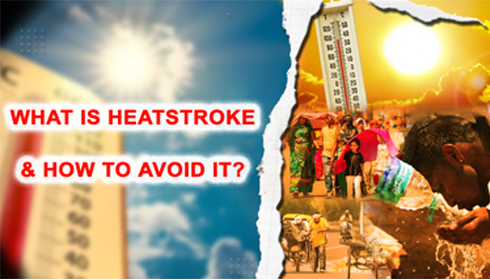
Heat sensitivity goes down with age, but not pressure: Study
A new study from the Chinese Academy of Sciences shows how getting older changes how people deal with pain. This helps us learn more about older people's pain and find better ways to treat it. According to the study, older people might feel pressure pain just as strongly as younger people, even though they might be less sensitive to unpleasant heat. Somatosensory function is the body's ability to feel things like touch, warmth, and pain. This study helps us learn more about it.
They are trying to figure out why people's pain thresholds change as they age. Some people, such as older people, are less sensitive to heat than younger people, so they don't feel it as strongly or as quickly. In the same way that younger people do, they can still feel pressure and pain.
The somatosensory function is the body's ability to feel things like touch, warmth, and pain. The somatosensory system relies on nerve endings in the skin and other tissues, which transmit signals to the brain, enabling the experience of various feelings. Some nerve endings that are sensitive to heat feel this kind of pain. Because older people are less sensitive, these nerve endings and the paths they take to send messages to the brain may not work as well as they used to.
Many nerve ends are physically sensitive, allowing them to feel pressure and pain. A new study shows that these brain connections don't change as people age.
Based on the study's findings, there may be significant medical consequences. When doctors look at pain, they must first keep in mind that older people may not feel hot pain as strongly as younger people. Because older people are less sensitive to temperature pain, normal pain assessments may not show how much pain they are really in. Doctors may change their tests to estimate patient pain better, resulting in better, more caring care.
These results demonstrate the varying sensitivity of older individuals to heat and pressure pain, a factor to consider when modifying pain treatments. For example, older people may need to change the strength of heat treatments because they are less sensitive to heat pain. This particular procedure promises safe and painless ways to deal with pain. Just like sensitivity doesn't change with age, neither do solutions for pressure pain.
The study emphasises how crucial it is to take precautions to prevent older people from suffering heat-related injuries. Older people may not notice burns or other heat-related illnesses because they don't feel the pain as strongly. Because seniors are less sensitive to pain, workers and health experts can protect them by setting standards for acceptable heat exposure, making sure homes are safe, and telling people about the risks.
Understanding how aging alters our perception of pain aids in improving care for older individuals, accurately diagnosing and treating the appropriate pain, and preventing accidents. The study is a big step forward in improving the health and well-being of our older citizens. The data may help doctors figure out what's wrong with older people who are in pain by showing how heat and pressure pain sensors change with age. We need to conduct more research to understand the causes of these changes and develop treatments that can enhance the quality of life for our elderly population. Knowing these things is critical in order to ensure that seniors receive the appropriate care that takes their pain into account.